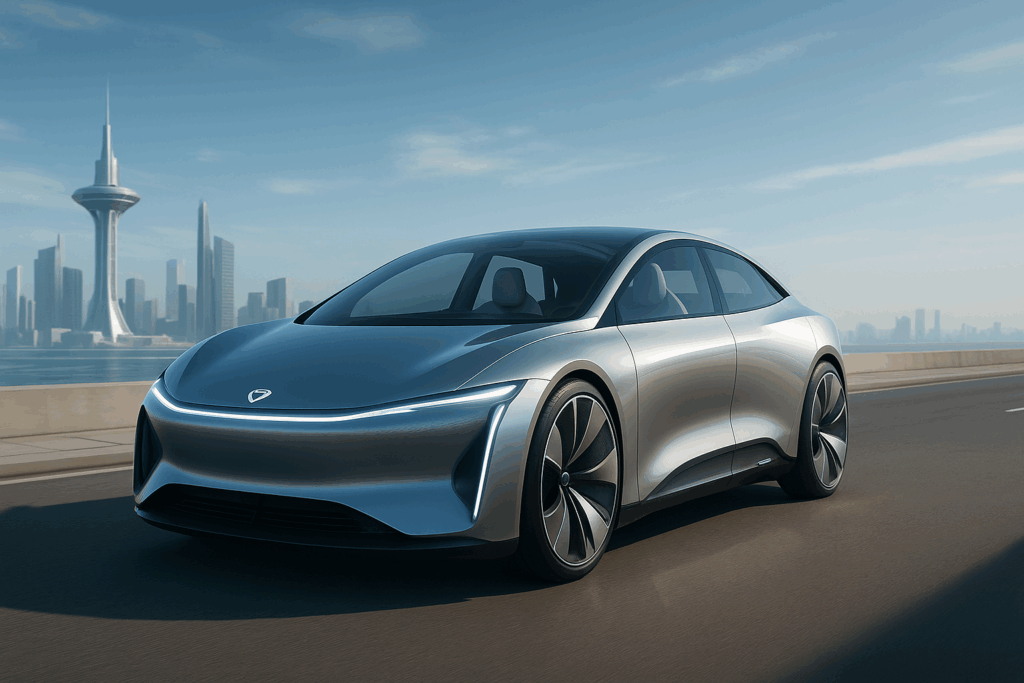Cars are no longer just machines that take us from point A to point B. They’re becoming smart, connected, even emotional spaces—places where we listen to our favorite music, take video calls, or relax while the car drives itself. As we look ahead, the question isn’t just what we drive, but how we’ll experience the entire idea of transportation.
Here’s a look into what the future of cars might really be like—beyond the concept art and glossy ads.

🚗 Autonomous Driving: The End of Driving as We Know It
Self-driving cars were once the stuff of science fiction. Not anymore. Autonomous driving is already being rolled out in stages around the world, with Level 3 autonomy (hands-off in specific conditions) available in models from brands like Mercedes-Benz and BMW. Tesla, Waymo, and Apple are all pushing the boundaries even further.
What we can expect:
- Cars that drop you off and go park themselves
- Highways where no one’s actually holding the wheel
- Fewer traffic accidents thanks to AI reflexes
- No more arguing over who’s driving on a road trip
By 2035, in many major cities, self-driving will be standard in premium models and increasingly common even in budget vehicles.
🔋 Electric Vehicles Will Be the Norm
We’re already watching the shift from petrol to electric, and it’s accelerating fast. Countries like New Zealand and Australia are offering rebates, building fast-charger networks, and planning to ban sales of new petrol cars in the next 10–15 years. Automakers are responding—from Toyota to Ford to Porsche, everyone’s going electric.
What’s changing:
- Longer range: Some EVs now exceed 700km per charge
- Charging speed: New batteries can charge in under 10 minutes
- Lower maintenance: No oil changes, fewer moving parts
- Cleaner cities: Less air and noise pollution
Electric is no longer a trend—it’s the new baseline.
🌐 Fully Connected Car Life
Your car isn’t just a car anymore. It’s a smart device on wheels.
Future cars will:
- Sync with your calendar, suggest departure times, and plan your route with live weather and traffic
- Auto-adjust seat position, climate control, and lighting based on who’s driving
- Connect with your smart home (“turn on the heater before I arrive”)
- Use biometric ID—like face or fingerprint—to unlock and start
Some vehicles already come with built-in Google Assistant, Alexa, or even ChatGPT-style AI that learns your habits.

AI-generated image. Created for illustrative purposes only.
🛋️ The Cabin Becomes the New Lounge
As driving becomes optional, interior design will take center stage. Think of a car more like a mobile lounge or media room than a traditional driver’s cockpit.
What’s coming:
- Rotating front seats to face the rear passengers during autonomous mode
- Pop-up screens for movies or meetings
- Mood lighting, ambient scent diffusers, and massaging seats
- Fold-flat seats for sleeping or working on the go
The goal is comfort, not control. And honestly, we’re here for it.
🛰️ Sustainability & Smart Materials
Carmakers are already experimenting with recycled plastics, vegan leather, and even mushroom-based interior materials (yes, really). Solar panels, battery recycling systems, and climate-positive production methods are becoming part of the design process—not an afterthought.
Future cars will be:
- Built with 90% recyclable materials
- Manufactured in carbon-neutral factories
- Lighter and more efficient thanks to composite structures
- Powered partly by the sun (solar roofs for accessories and battery pre-conditioning)
Sustainability won’t be a luxury—it’ll be the industry standard.
✨ Holograms, Augmented Reality, and AI
The dashboard as we know it? It’s about to get a major upgrade.
- AR windshields will highlight road signs, hazards, and directions without taking your eyes off the road
- Holographic displays could replace traditional touchscreens
- AI copilots will learn your habits, music taste, and even check in on your mood
It’s not just about navigation—it’s about a car that understands you.
Final Thoughts
The future of cars isn’t just about driving—it’s about experiencing. It’s about intelligent mobility that adapts to your needs, your routines, and your lifestyle. Whether you’re heading to work, going on a road trip, or just escaping for some quiet time, cars in the next decade will be more than vehicles. They’ll be companions, assistants, and spaces where we live a small part of our day-to-day life.
Driving as we know it is evolving. And honestly? It might just become a lot more enjoyable.
Sources:
- Mercedes-Benz Autonomous Driving Reports
- Tesla Investor Update 2025
- Volvo Sustainability Goals
- Wired Auto Tech Forecast
- The Verge – Future Mobility Series
- Bloomberg EV Outlook 2025
